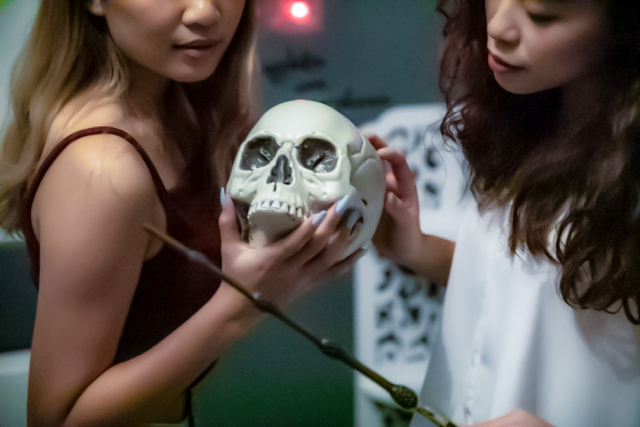The Psychology Of Participating In An Escape Room
Doing an escape room is like walking into a puzzle. For an entire hour, you stop thinking beyond escaping with whatever tools are at your disposal. Even though you are fully aware that you’re completely safe, you can’t help the thrill you feel. It is one of the many factors that are so attractive to people in the first place. The psychological effect this can have on you is interesting, to say the least. If asked, you might say that the only thing that goes on in the mind when doing an escape room is puzzle-solving tactics. You’d be wrong. This article details the inner journey you undergo when doing an escape room.
1. Survival mode
Escape rooms can often be so enveloping and immersive that you start to feel like you are the hero of the story. The line between fiction and reality becomes slightly blurry. The settings and atmosphere can begin to make you believe that you’re actually in a situation that requires an escape, which triggers your brain’s survival mode. It then releases adrenaline, which can help you concentrate better and allows you to think quicker on your feet.
2. Thinking creatively
Escape rooms at Lockdown Singapore are specifically designed to encourage out-of-the-box thinking. You need to be able to see the bigger picture to come up with answers and understand the clues.
3. Motivates availability heuristics
The clock’s ticking down, and the urgency of the puzzles waiting to be solved encourages your brain to use availability heuristics. This is a way to cut down on excess mental efforts. You start to remember, solve, and make choices quicker than ever before.
4. The hard-easy effect
Trying to solve puzzles in an escape room and within a designated time limit can trigger something known as the “hard-easy” effect. Essentially, knowing your time is short can increase stress levels and make solving something relatively easy seem extremely difficult. Oftentimes, you try to overcomplicate matters when the solution is fairly straightforward.
5. Making plans
In escape rooms, people tend to make many plans for how they’ll solve a situation before even stepping foot into one. Most of the time, these plans are rendered useless. It’s fine, though. Improving and thinking of solutions as you go is half the fun.
6. Looking selectively
Brains work in mysterious ways. For example, after solving the first few puzzles, you might think you already have all the answers and end up looking for any signs to confirm your preconceived notions. When you do that, the problem is that you’re overlooking plenty of other clues just because they don’t fit within your guidelines.
7. Feeling the pressure
There are a lot of factors that may lead you to feel like you’re under a lot of pressure when doing an escape room. The situation can cause stress hormones to be released, impairing your judgement and increasing the likelihood of you making impulsive choices.
8. Memory recall
Escape rooms require a lot of recall power. You will be solving a lot of puzzles and obtaining plenty of clues, which are often messy and unclear. The location of these clues is also not organised in any way. Remembering all this information will definitely be a fun challenge!
Conclusion
Escape rooms are very fun and immersive, but they can affect you in new and fascinating ways because of how immersive they are. Lockdown Escape provides you with escape rooms in Singapore that are held in a fun and safe environment to explore aspects of yourself you’d never realised existed. Contact us today to get started!



